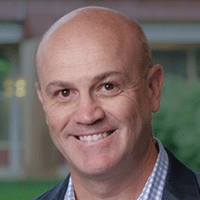
Professor Santosh Kapuria
R. C. Malhotra Chair Professor
Department of Applied Mechanics
IIT Delhi, INDIA
Presentation Title: Baseline-Free Structural Health Monitoring with Guided Waves in Varying Environments
Abstract: Lamb wave-based techniques have been extensively investigated for detecting internal and surface damage in thin-walled metallic and laminated composite structures using built-in piezoelectric wafer active sensors (PWAS). However, their practical deployment is often hindered by the challenge of obtaining reliable baseline signals representing the healthy state of a structure under all possible operating conditions. In this talk, we present a novel Refined Time-Reversal Method (RTRM) for Structural Health Monitoring (SHM) that overcomes this limitation by eliminating the need for baseline comparisons. Unlike conventional time-reversal approaches, the RTRM identifies the best reconstruction frequency for interrogating the structure and utilizes an extended wave packet spanning the two sidebands adjacent to the main mode to compute a damage index. This refinement markedly enhances the method’s sensitivity to damage. Moreover, the additional effort of acquiring Lamb wave signals twice (in forward and reconstruction paths) is avoided by performing the time-reversal process virtually, using only the forward signal obtained under broadband excitation. The RTRM is integrated with the Reconstruction Algorithm for Probabilistic Inspection of Defects (RAPID) to enable accurate localization in multi-damage scenarios. It is demonstrated that while the conventional time-reversal methods cannot operate as a baseline-free technique under varying temperature conditions, the RTRM achieves this goal, establishing it as a uniquely effective physics-based approach. The efficacy of the method is illustrated through numerical simulations and experiments conducted on metallic and laminated plates, as well as pipes. The talk will also highlight recent advances in enhancing detection and localization accuracy through main-mode dispersion compensation, automatic mode separation, and revisiting the weight distribution function in RAPID. In addition, a separate line of work on non-contact baseline-free SHM using laser Doppler vibrometer–based sensing for plates and pipes, employing a virtual frequency fusion strategy, will also be discussed.
Biography: Prof. Santosh Kapuria is the R. C. Malhotra Chair Professor in the Department of Applied Mechanics at the Indian Institute of Technology (IIT) Delhi. He earned his Ph.D. there in 1997 and began his career with Engineers India Limited, one of Asia’s leading engineering consultancies, gaining extensive industrial R&D experience before moving to academia. From 2015 to 2020, he served as Director of the CSIR–Structural Engineering Research Centre in Chennai, a premier National Laboratory. His research spans smart and multifunctional structures, structural health monitoring, and computational structural mechanics, resulting in over 170 publications in leading international journals. Prof. Kapuria has been a Humboldt Research Fellow at TU Darmstadt, Germany, and a Fulbright Senior Research Fellow at Stanford University, USA. He is a Fellow of all four National Academies of India—the Indian National Science Academy, the Indian Academy of Sciences, the National Academy of Sciences, India, and the Indian National Academy of Engineering. His recognitions include the prestigious J. C. Bose National Fellowship from the Department of Science and Technology and IIT Delhi’s Best Researcher Award. He has contributed extensively to the national and international scientific community, serving as a member of the General Assembly of the International Union of Theoretical and Applied Mechanics (IUTAM) and Chairperson of its National Committee, President of the Indian Association for Structural Engineering, and Vice President of the International Society of Mechanical System Dynamics.

Massimo Ruzzene
Senior Vice Chancellor for Research and Innovation
Dean of the Institutes
University of Colorado Boulder
Presentation Title: Manipulation of Elastic Waves for NDE: Concepts and Applications
Abstract: The presentation will provide an overview of methodologies to control and manipulate the propagation of elastic waves in solids, and to employ them for material characterization and non-destructive evaluation purposes. These methodologies enable novel concepts for the generation of elastic waves that rely on patterned acoustic transducers and the representation of acoustic wavefield in the frequency/wavenumber domain. In addition, focusing and manipulation of elastic waves along desired path will be illustrated in the context of concentrating elastic energy in focal areas, and in achieving lensing effects. One of such methodologies relies on the analysis of the topology of the reciprocal space, which is a powerful tool to understand and tailor wave propagation modalities. A second approach relies on surface curvature, which is explored as a mean to induce spatial variations of the effective refractive index of waveguides. Graded refractive index distributions usually requires the use of graded metamaterials, which pose manufacturing challenges, and introduce bandwidth limitations. It is here shown that the effect of a variable refractive index is equivalently achieved by warping surfaces in space.
Biography: Massimo Ruzzene is the Senior Vice Chancellor for Research and Innovation and Dean of the Institutes at the University of Colorado Boulder. He is also the Slade Professor of Mechanical Engineering with a joint appointment in the Smead Aerospace Engineering Sciences department of CU Boulder. M. Ruzzene is author of 2 books, more than 200 journal papers and 280 conference papers. His current and past research has focused on solid mechanics, structural dynamics and wave propagation with application to ultrasonic imaging, structural health monitoring, metamaterials, and vibration and noise control. M. Ruzzene is a Fellow of American Society of Mechanical Engineers (ASME) and of the Society of Engineering Science (SES), and he is an Associate Fellow of American Institute of Aeronautics and Astronautics (AIAA).